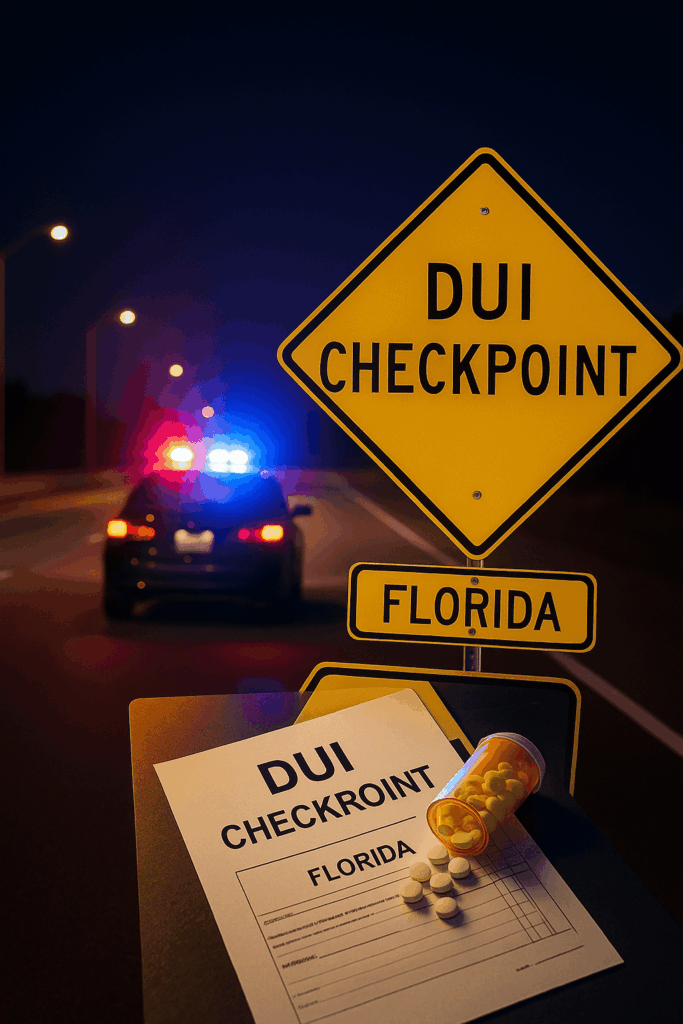Florida DUI Defense Lawyer | Collisions, Checkpoints, Traffic Stops, and the 10-Day License Deadline
Driving under the influence (DUI) charges are among the most commonly prosecuted criminal offenses in Florida. The penalties imposed after a guilty plea or conviction can include jail time, substantial fines, and suspension or revocation of your driver’s license. A DUI conviction can also jeopardize employment, significantly increase insurance premiums, and carry long-term consequences that follow you for life.
Even individuals who generally make responsible decisions can find themselves facing DUI charges. In Florida, there are three recurring situations that most often lead to DUI investigations and arrests.
Common Situations That Lead to DUI Charges in Florida
Involvement in a Traffic Collision
Law enforcement officers closely scrutinize everyone involved in a traffic collision, especially when there are injuries, significant vehicle damage, or conflicting accounts of what occurred. Officers routinely look for signs of impairment and may request field sobriety exercises or chemical testing. In some cases, a driver can be arrested for DUI even if they did not cause the crash. Being involved in any collision increases the likelihood of being tested for impairment.
Sobriety Checkpoints and DUI Roadblocks
Florida permits sobriety checkpoints when law enforcement agencies follow proper legal procedures. At these checkpoints, officers are trained to look for indicators of intoxication such as slurred speech, bloodshot eyes, or the odor of alcohol. Encounters at checkpoints can escalate quickly, and inaccurate results may occur due to confirmation bias, environmental conditions, or equipment issues. A driver may face DUI allegations even when no alcohol has been consumed.
Routine Traffic Stops
Many DUI arrests begin with an ordinary traffic stop. Sometimes an officer claims to observe impaired driving behavior. Other times the stop occurs for an unrelated issue such as speeding, a broken taillight, or a lane violation. During the interaction, the officer may suspect impairment based on the driver’s responses or behavior. Once a DUI investigation begins, it can quickly lead to roadside testing, arrest, and formal charges.
Regardless of how the arrest occurs, drivers often need experienced legal support to evaluate the evidence and develop a defense strategy.
Florida DUI Penalties
| Offense | Jail Time | Fines | License Suspension |
|---|---|---|---|
| 1st DUI (BAC under .15) | Up to 6 months | $500 – $1,000 | 6 months minimum |
| 1st DUI (BAC .15+ or minor in vehicle) | Up to 9 months | $1,000 – $2,000 | 6 months minimum |
| 2nd DUI (within 5 years) | 10 days minimum; up to 9 months | $1,000 – $2,000 | 5 years minimum |
| 3rd DUI (within 10 years) | 30 days minimum; up to 5 years (felony) | $2,000 – $5,000 | 10 years minimum |
| 4th DUI (any time) | Up to 5 years (felony) | $2,000 minimum | Permanent revocation |
Critical deadline: After a DUI arrest, drivers typically have only 10 days to request a formal review hearing to challenge the administrative suspension of their license. Missing this deadline can result in an automatic suspension that is completely separate from the criminal case.
Effective Florida DUI Defense Strategies
DUI cases often hinge on whether law enforcement followed proper procedures and whether the evidence is reliable. Common areas of defense include:
- Illegal or improper traffic stops: Officers must have a lawful basis to initiate a stop.
- Field sobriety test issues: These tests are subjective and affected by medical conditions, fatigue, footwear, weather, and road conditions.
- Breath test reliability: Breathalyzer machines require strict calibration and proper administration.
- Blood test errors: Chain-of-custody mistakes or improper handling can invalidate results.
- Timing and rising BAC defenses: Alcohol levels can rise after driving but before testing occurs.
The Two-Track DUI Process in Florida
A Florida DUI arrest usually triggers two separate proceedings: a criminal court case and an administrative driver’s license action. These processes are independent of one another. Even if criminal charges are later reduced or dismissed, a driver can still lose their license if administrative deadlines are missed.
Florida DUI Frequently Asked Questions
Should I refuse a breath test?
Refusing a breath test can lead to an automatic license suspension and may be used against you in court. However, refusal also limits certain evidence. The decision depends on the specific circumstances and should be evaluated with legal counsel.
Can a DUI charge be reduced or dismissed?
Yes, in some cases. Illegal stops, faulty testing, procedural errors, and weak evidence can lead to dismissals or reductions such as reckless driving.
How long does a DUI stay on my record?
DUI convictions in Florida can have permanent consequences and generally cannot be sealed or expunged. This makes early and aggressive defense especially important.
Will I be required to install an ignition interlock device?
Ignition interlock requirements may apply depending on BAC level, prior convictions, or the presence of a minor in the vehicle.
Protect Your Rights After a DUI Arrest
If you are arrested for DUI in Florida, the decisions you make in the first days matter. A careful review of the stop, the testing process, and all available evidence can significantly affect the outcome. To discuss your situation, contact Bernhardt Riley, Attorneys at Law, PLLC at (727) 275-9575.
Statutory reference: Fla. Stat. § 316.193 (DUI). Statutes and penalties should be verified for final legal accuracy.




